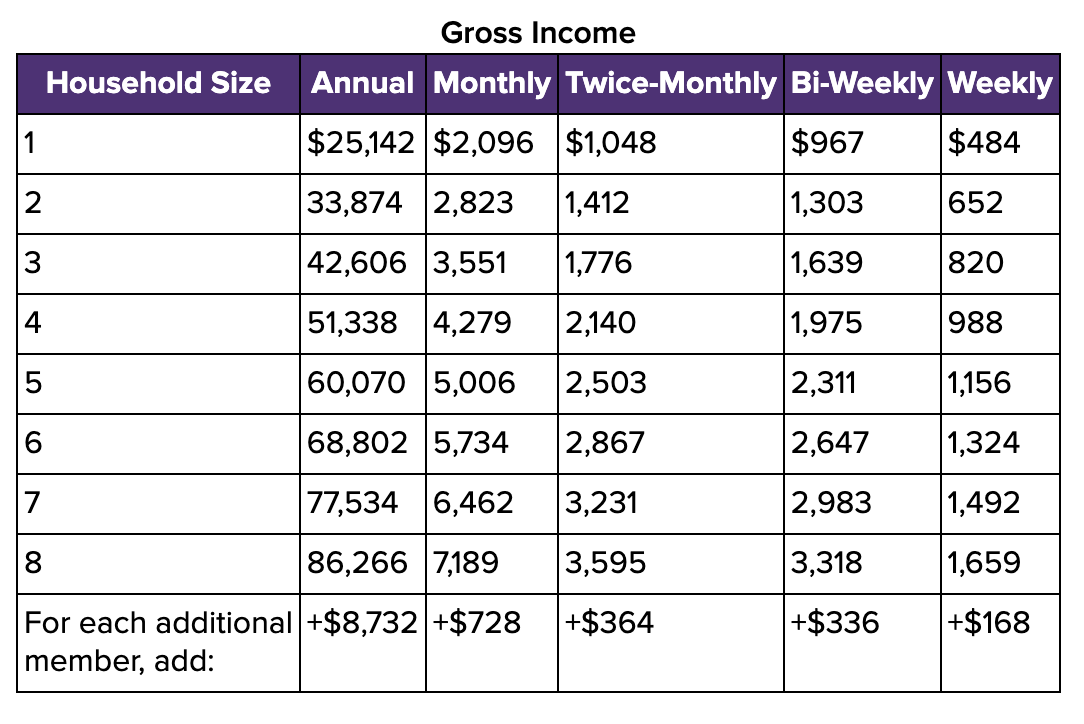| New Social Media Toolkit: Ready, Set, Grow! WIC provides nutritious food, health and nutrition education, breastfeeding support, and referrals to community services to about 370,000 low-income New Yorkers. It leads to healthier births, more nutritious diets, better health care, and plays a critical role in improving lifetime health for young children and their parents. To raise awareness of this critical public health and nutrition program, Hunger Solutions New York has released Ready, Set, Grow!, a new social media toolkit focused on WIC’s health benefits. Please check out the social media toolkit to find turn-key social media content you can immediately put to use, including sample language in English and Spanish and a large assortment of high-resolution graphics like the images below. |
| |
|
| | Find More WIC Outreach Resources With only about 50 percent of eligible New Yorkers statewide enrolled in WIC, and even fewer upstate, outreach to potentially eligible families is urgently important. The WIC Help New York Resource Center is a one-stop shop for WIC outreach materials. Visit to find everything you need to spread the word and connect families to WIC, including tools to promote Wanda, WIC’s 24/7 virtual assistant, a selection of articles with general information about WIC, flyers with messaging for different audiences, and more. |
|  |
|
| | Updated WIC Income Guidelines The United States Department of Agriculture (USDA) recently updated federal income eligibility guidelines for WIC. For example, through June 30, 2023, a working family of four can have an annual gross income of $51,338 and qualify. The chart below further outlines gross income limits by household size. When considering eligibility, please note that an unborn child can be counted as a member of the household. And, remember, a WIC applicant who has proof of already participating in Medicaid, SNAP, or TANF automatically meets the income eligibility requirements for WIC and does not need to provide further proofs of income. |
|  | | Action Needed to #ExtendtheWICBump Reports show that increases in WIC benefits have led to increased fruit and veggie consumption among WIC-enrolled children and a greater variety of produce purchased by WIC families. Unless funding is extended, participants will lose access to WIC's enhanced vegetables and fruits by September 30. The National WIC Association is leading the effort to #ExtendTheWICBump to support the long-term health of children with early nutrition interventions like the WIC bump. Please take two minutes to add your voice here. |
| | National Research & Resources Round-Up Check out the latest research and resources from our national WIC partners. Center on Budget and Policy Priorities (CBPP) - Infant Formula Shortage Highlights WIC’s Critical Role in Feeding Babies shows how infant formula shortages triggered by a safety recall have brought attention to the role that the WIC program plays in the infant formula market. This paper explains how WIC negotiates with infant formula manufacturers to provide lower rates for formula purchased with WIC funds, and how policymakers have responded to the shortage — addressing some key misperceptions — and raises key questions that policymakers will need to address as they develop policies to prevent an infant formula supply disruption like this from happening again.
Food Research and Action Center (FRAC) - Eight Ways to Maximize WIC and Reduce Barriers highlights the impact of WIC in reducing food insecurity and nutrition-related health problems during pregnancy, infancy, and early childhood, and also includes a timeless graphic that spotlights the health and nutrition benefits of this vital program.
National WIC Association (NWA) - Factsheet: Responding to COVID-19: How the Public Health Emergency Declaration Affects WIC. Since March 2020, WIC providers have modified services to reflect the public health risks posed by COVID-19. Critical waiver authorities — including ongoing telehealth flexibilities — are contingent on the federal Public Health Emergency (PHE) declaration, which must be renewed every 90 days by the Secretary of Health and Human Services. This fact sheet explains how sudden or premature termination of the PHE could complicate WIC’s ability to continue to serve participating families and undermine the progress made in improving nutritional outcomes for new and expectant parents and young children during the pandemic.
- Update: Infant Formula Crisis Social Media Toolkit. Created earlier this spring, NWA’s toolkit includes messaging examples and graphics that help agencies inform families about the recall and their best options. The newest toolkit additions cover messaging about safety do's and don'ts, increasing breastmilk supply, relactation, and breastfeeding education. Other topics include identifying recalled formula, returning or exchanging recalled formula, formula safety, and breastfeeding support. Content is available in English and Spanish.
|
| |
|
| | Hunger Solutions New York
14 Computer Drive East | Albany, New York 12205
518-436-8757 | info@hungersolutionsny.org |
| | |
|
| |
|
|